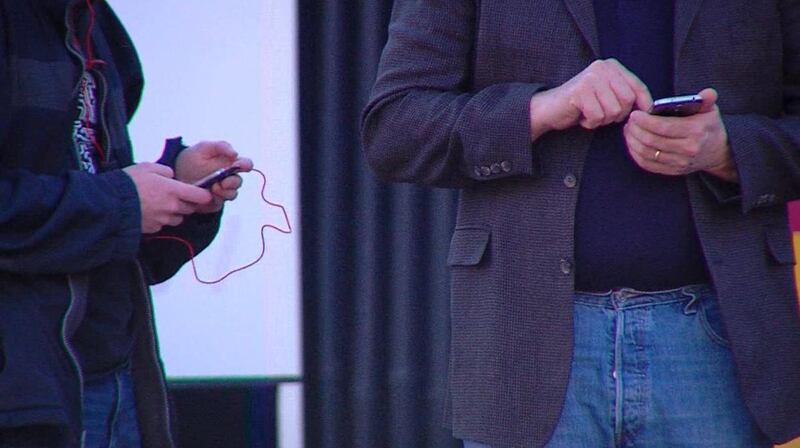Whether or not it's a formal addiction, or just overuse to the point of compulsion, we don't know. In some extreme circumstances, it probably rises to the level of an addiction. – Dr. David Strayer, Applied Cognition Lab
SALT LAKE CITY — Smartphones and tablets have changed the way people work, play and keep in touch with families.
Ongoing research shows they can also detract from people’s lives, increase their stress levels and get in the way of their relationships. But does that behavior rise to the level of an addiction?
For many people, it’s the last thing they see before going to sleep and the first thing they reach for when they wake up.
"I actually think it's a good way to communicate with others and collaborate with others," said high school freshman Nithin Chalapathi. "There are times when it gets overwhelming, like when you have to do homework."
"It's been fantastic," Jim Grant said about his smartphone. "I love every minute of it."
Grand said he uses his phone every day, all day, on the job checking work licenses for the state. He said he likes the speed and efficiency it gives him while working. He also uses a map app to get where he's going.
Grant said he likes being connected all of the time, and he does not consider it an addiction.
"No, I love every aspect of my iPhone," he said.
A number of people at a TRAX station also talked about their smartphone usage, including how often they check their devices.
"Probably more often than I should," Alex Fisher said.
Kelly Mai said she checks her phone every five minutes and believes that's pretty typical in her high school peer group.
According to a recent Mobile Mindset Study by Lookout, nearly 60 percent of Americans check their phones at least once an hour.
"Every time it buzzes, I'm checking it, if I'm not at my desk," Ryan Ostler said.
Ostler said he wishes he wasn't so tied to his phone, but it's a professional necessity for him.
"It seems like that's just the way it is now," he said. "You just have to be on-call 24/7 for work."
According to the study, young people are the most plugged in, with 63 percent of women and 73 percent of men ages 18 to 34 saying they don't go an hour without checking their phones.
The study also showed that many will break the law and rules of etiquette to stay connected. Twenty-four percent said they check their phones while driving; 9 percent said they check their phones during religious services at a house of worship; 30 percent admit they check their phones during meals with others.
"Only if I get a notification, and I know something is going on," Ostler said about checking his phone at meals. "I'll take a quick peek and quickly put it away afterward."
Dr. David Strayer, who directs the Applied Cognition Lab at the University of Utah, has become a national authority on the topic over the past 12 years.
"I have all the gadgets just like everyone else," Strayer said, “but there's a time and place for using them."
Many people may be too plugged in to the detriment of their emotional health, he said. In a way, they've become "a slave to technology," said Strayer, who conducts research to better understand how and why people can become overloaded while multitasking.
"The phone rings, we have to answer it," he said, "If we get a text message, we need to reply."
Strayer pointed out that most people feel socially and professionally obligated to respond to text messages, emails and alerts on social media.
Seventy-five percent of Americans sleep with the phone in the room, many with it right in the bed. Strayer said many teens feel compelled to reply to a text message in the middle of the night.
That's not healthy, he said, especially when people prioritize their technology over human interaction or use it as an intermediary.
"You lose that human connection, and that's a violation of the way that humans have interacted for hundreds of thousands of years," the psychologist said.
Strayer suggested it may be changing the way we think and behave. People Google more and remember less. They let GPS do their navigation. All of the disruptive noise that people channel into their minds from their mobile devices can stress them out, exhaust them and stunt their social skills.
"Whether or not it's a formal addiction, or just overuse to the point of compulsion, we don't know," Strayer said. "In some extreme circumstances, it probably rises to the level of an addiction."
He said that's still up for debate within the scientific definition of addiction.
Strayer suggests people completely unplug from time to time, interact with their families, get outside in nature or take a hike. He said that's the best way to relieve the stress is to have a “digital detox,” of sorts.
Email: jboal@deseretnews.com



